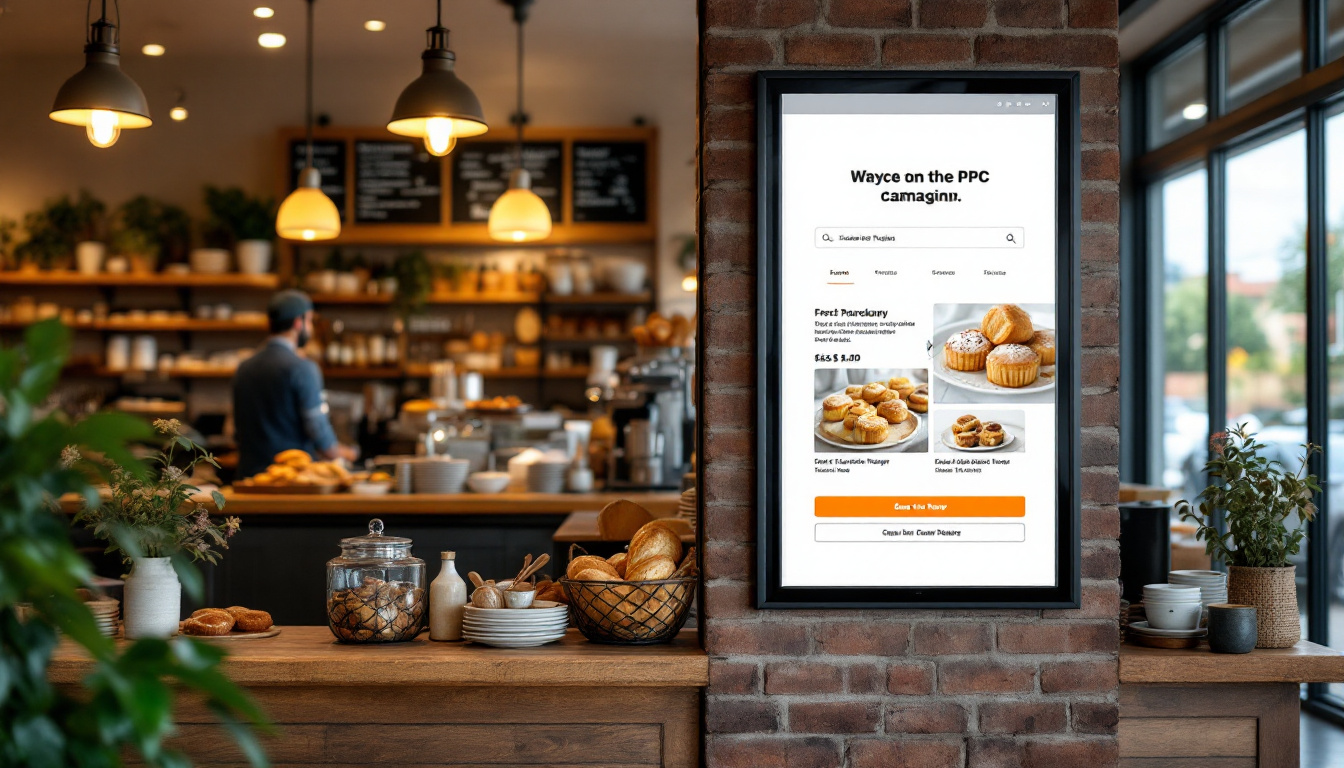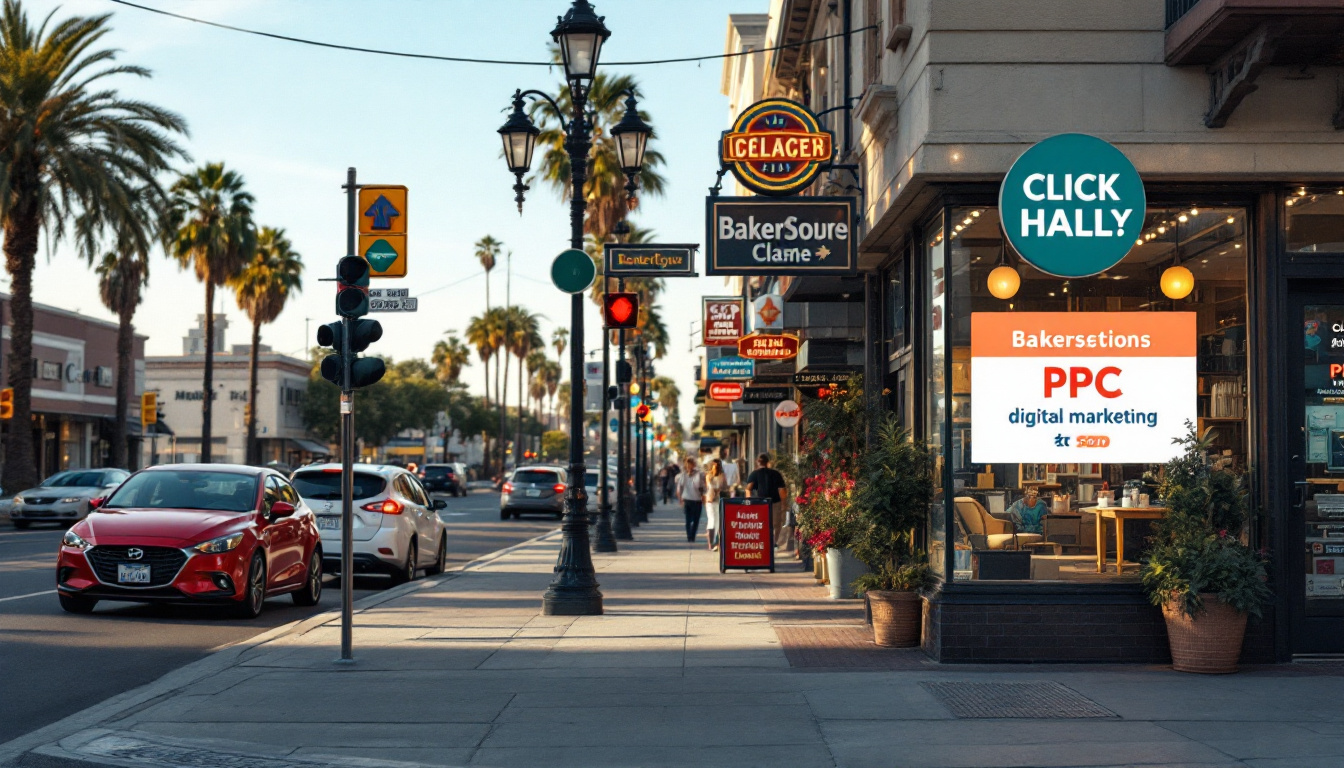Top PPC FAQs Answered for Bakersfield, CA Businesses

Pay-Per-Click (PPC) advertising has become an essential marketing tool for businesses across various industries, including those in Bakersfield, California. This article answers some of the most frequently asked questions about PPC to help local businesses understand its significance and how to leverage it effectively.
What is PPC and how does it work?
PPC, or Pay-Per-Click, is an online advertising model where advertisers pay a fee each time one of their ads is clicked. Essentially, it’s a way of buying visits to your site, rather than attempting to “earn” those visits organically. Unlike traditional advertising mediums, PPC allows businesses to target specific audiences based on various criteria such as location, interests, and search behavior.
The workings of PPC can be broken down into a few key elements:
- Bidding: Advertisers set bids for keywords they want to target. The bid represents the maximum amount they are willing to pay for a click on their ad.
- Ad Auction: When a user performs a search, an auction is held among advertisers bidding for keywords relevant to that search query. The ad with the highest combined score of bid amount and ad quality may appear at the top.
- Quality Score: This Google metric measures the relevance and quality of ads, landing pages, and keywords. Higher quality scores can lower your costs and improve ad placement.
The Advantages of PPC
PPC offers several significant advantages for businesses, especially in competitive markets like Bakersfield. First, it provides immediate visibility. While SEO efforts can take time, PPC ads can appear at the top of search results almost instantly. This ensures a quick influx of traffic when campaigns are launched.
Secondly, PPC allows for precise targeting. Businesses can focus their ads on particular demographics, specific geographic areas, and even certain devices, ensuring that their marketing efforts reach the right audience.
Moreover, PPC campaigns can be easily adjusted and optimized in real-time. Advertisers can analyze performance metrics such as click-through rates (CTR) and conversion rates, allowing them to make data-driven decisions. If a particular ad is underperforming, adjustments can be made to the ad copy, targeting parameters, or bidding strategy to enhance effectiveness. This level of adaptability is crucial in today’s fast-paced digital landscape, where consumer preferences can shift rapidly.
Additionally, PPC can complement other marketing strategies, such as content marketing and social media campaigns. By using PPC to promote high-quality content, businesses can drive traffic to their blogs or landing pages, increasing engagement and building brand authority. This integrated approach not only maximizes visibility but also fosters a cohesive brand message across multiple platforms, ultimately leading to higher customer trust and loyalty.
Why is PPC important for local businesses?
For local businesses in Bakersfield, PPC advertising is particularly beneficial. It enables companies to compete effectively with larger national brands by focusing on local markets. PPC campaigns can be tailored to target consumers searching for products and services within a specific radius, making it easier to convert searches into sales.

Moreover, PPC allows businesses to establish brand awareness in their community. Well-crafted advertisements can help local consumers recognize and recall a business brand during their purchasing journey. The immediate feedback provided by PPC allows for rapid adaptations to ad strategies based on performance metrics.
Driving Traffic and Sales
Local businesses that utilize PPC effectively can drive considerable traffic to both their websites and physical locations. By using various ad formats, such as Google Ads and social media campaigns, businesses can attract potential customers during various stages of their buyer's journey.
Additionally, when combined with other digital marketing strategies like local SEO, PPC can maximize visibility and multiply conversion opportunities. With proper tracking and analysis tools, businesses can continuously optimize their campaigns to achieve better results over time.
Furthermore, PPC advertising offers a unique advantage in terms of budget control. Local businesses can set daily or monthly spending limits, ensuring that they remain within their financial means while still reaching their target audience. This flexibility allows for experimentation with different ad formats and messaging, enabling businesses to find the most effective approach for their specific market. The ability to pause or adjust campaigns in real-time also means that businesses can respond quickly to changes in consumer behavior or market conditions, ensuring that their advertising efforts remain relevant and impactful.
In addition to driving sales, PPC can also enhance customer engagement. By utilizing remarketing strategies, businesses can re-engage visitors who have previously interacted with their website but did not convert. This targeted approach keeps the brand top-of-mind and encourages potential customers to return and complete their purchase. Moreover, local businesses can leverage location-based targeting to reach consumers when they are most likely to make a purchase, such as when they are near their physical store. This strategic alignment of timing and location can significantly boost foot traffic and sales, making PPC an indispensable tool for local business growth.
How to select the best PPC platform?
Selecting the best PPC platform for your business requires careful consideration of several factors. The most popular platforms include Google Ads, Bing Ads, Facebook Ads, and LinkedIn Ads. Here are some attributes to consider:

- Target Audience: Different platforms attract different users. For instance, Facebook is excellent for reaching a wide audience with diverse interests, while LinkedIn is ideal for B2B targeting.
- Ad Formats: Evaluate the types of ads each platform offers and determine which formats align best with your marketing goals—be it image ads, video ads, or text-based ads.
- Budget Constraints: Some platforms may provide more favorable options for businesses with limited budgets. For local businesses, assessing the cost-effectiveness of advertising on different platforms can yield better returns.
Test and Adapt
Once you’ve chosen a platform, it’s crucial to continuously test your ad strategies. Running A/B tests on different ads can provide valuable insights into what works best for your target audience. Adjusting your approach based on these evaluations can lead to improved engagement and conversion rates.
Moreover, regularly tracking key metrics will not only highlight successful strategies but also areas needing improvement. Staying agile and informed enables businesses to adapt to the ever-evolving digital landscape.
In addition to testing and tracking, consider the importance of audience segmentation. By dividing your audience into specific groups based on demographics, interests, or behaviors, you can tailor your ads to resonate more deeply with each segment. This personalized approach can significantly enhance the effectiveness of your campaigns, leading to higher click-through rates and conversions. For example, a company selling fitness products might create different ads targeting gym enthusiasts versus casual exercisers, ensuring that the messaging speaks directly to each group’s unique motivations and needs.
Furthermore, leveraging retargeting strategies can also amplify your PPC efforts. Retargeting allows you to re-engage users who have previously interacted with your website or ads but did not convert. By displaying tailored ads to these potential customers as they browse other sites, you keep your brand top-of-mind and increase the likelihood of conversion. This strategy not only helps in maximizing your ad spend but also builds brand familiarity, which can be crucial in driving sales over time.
What are the costs associated with PPC?
The costs of PPC can vary widely based on factors such as industry competitiveness, keyword selection, and geographic targeting. Typically, businesses are charged on a cost-per-click (CPC) basis, meaning that they only incur charges when a user clicks their ad. However, the actual amount spent can depend on numerous variables:
- Keyword Competition: Highly competitive keywords can significantly increase CPC rates.
- Quality Score: A higher quality score can lower your CPC and improve your ad placement, positively affecting your overall budget.
- Ad Spend: Businesses need to set their daily or monthly ad budgets to control overall PPC expenses.
Estimating Costs
For local businesses in Bakersfield, starting with a modest budget is often wise. This allows time for testing and optimizing campaigns based on actual performance data. Regularly reviewing and adjusting your budget based on campaign success will ensure that you are effectively using your resources.
Ultimately, the key is to balance between adequate visibility and budget limitations. Careful management will help businesses stretch their PPC investment further while achieving their marketing goals.
How to measure the success of your PPC campaigns?
Measuring the success of PPC campaigns is critical to understanding their impact and making necessary adjustments. There are several key performance indicators (KPIs) that businesses should focus on:
- Click-Through Rate (CTR): This metric shows how often people click on your ad after seeing it. A higher CTR indicates which ads resonate best with your audience.
- Conversion Rate: The percentage of users who complete desired actions (purchases, sign-ups) after clicking your ad. This metric is crucial for measuring ROI.
- Cost Per Acquisition (CPA): This figure represents the total cost of acquiring a customer. Keeping this number low while maintaining a healthy conversion rate is the goal of most PPC campaigns.
Utilizing Analytics Tools
Using tools such as Google Analytics and platform-specific dashboards can provide insights into how users interact with your ads and website. Regularly analyzing this data will help identify trends, enabling businesses to refine their approach and improve future campaigns.
In conclusion, understanding these PPC FAQs can empower Bakersfield businesses to develop successful advertising strategies. By leveraging PPC's strengths, local enterprises can effectively reach their target audiences, maximize their marketing ROI, and sustain growth in a competitive marketplace.

As a Google Ads expert, I bring proven expertise in optimizing advertising campaigns to maximize ROI.
I specialize in sharing advanced strategies and targeted tips to refine Google Ads campaign management.
Committed to staying ahead of the latest trends and algorithms, I ensure that my clients receive cutting-edge solutions.
My passion for digital marketing and my ability to interpret data for strategic insights enable me to offer high-level consulting that aims to exceed expectations.





























